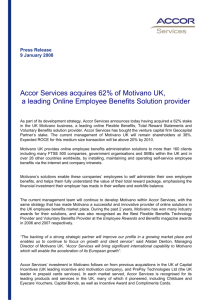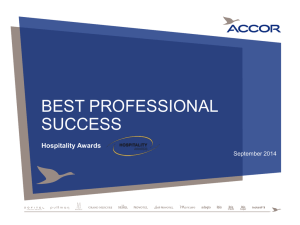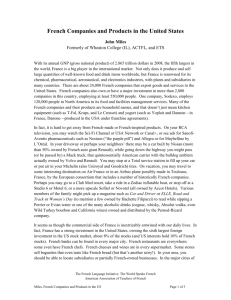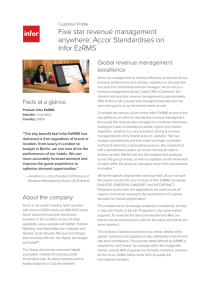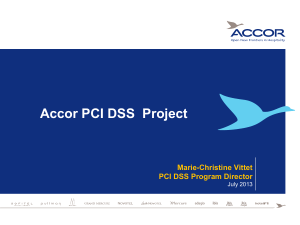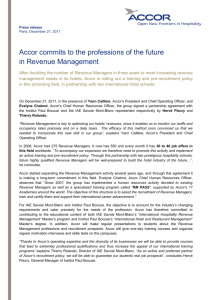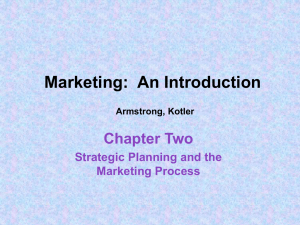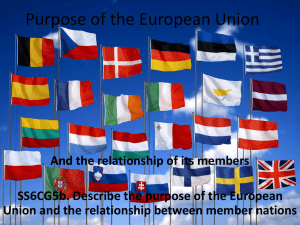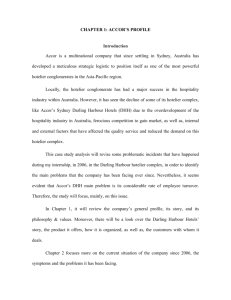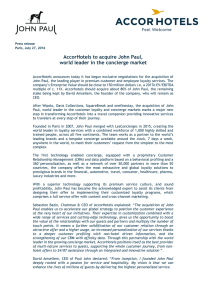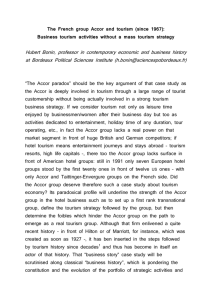Development strategy
advertisement
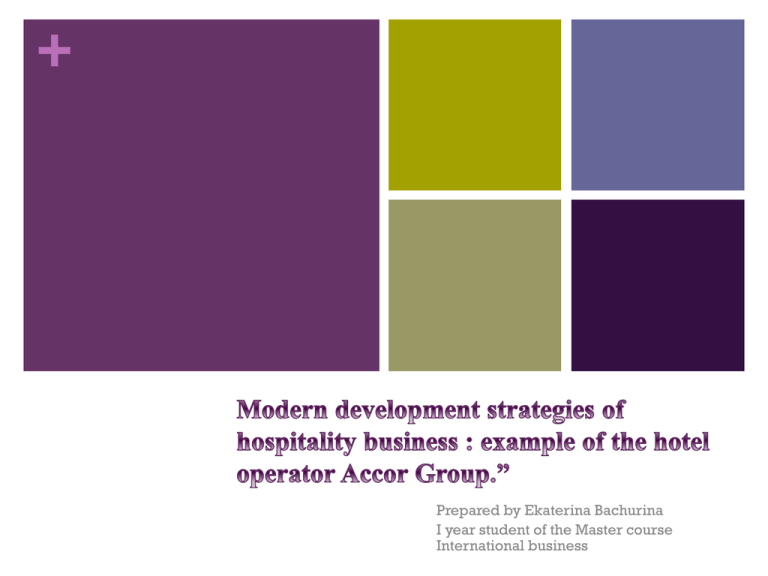
+ Prepared by Ekaterina Bachurina I year student of the Master course International business + Plan of the presentation Introduction Relevance Research of the topic methods and tools Company’s Global profile marketing strategy in practice Conclusion + Introduction The topic of my thesis is: “Modern development strategies of hospitality business : example of the hotel operator Accor Group.” Plan of my dissertation: 1. Marketing development strategies 2. Functional marketing strategies 3. Management development strategies 4. Development strategies Accor Group resorts to and relevance of international hospitality business expertise for Russia + Relevance 2002: Direct contribution to world GDP - 2.1 trillion $ Direct contribution to employment - 101 million jobs. Direct, indirect and induced impact : 6.6 trillion $ to world GDP 9% of total economy GDP in 2012 260 million in jobs1 in 11 jobs 760 billion $ in investment 5% of total economy investment 1.2 trillion$ in exports5% of world exports. + Relevance Shift in the ‘world order’ of Travel& Tourism as Asia, Latin America and Sub-Saharan Africa has been among the fastest growing markets; Meeting demand of savvy clients; Russia has become a member of WTO and formed the Custom Union with Belorussia an Kazakhstan. + Research methods and tools Qualitative methods : o Observation methods, o Document review, o Literature search; Quantitative methods : o Talking with people, o Questioning, o Email surveys and internet surveys. + Accor: company profile + Accor: Brand Portfolio + One of the strategies in practice This strategy mainly contains of the following components: Consolidation of capitals through M&A Franchising, management Diversification and integration Global, multination strategy and alliances strategy and partial adaptation + Consolidation of capitals through M&A 2012: the Group added 266 hotels (38,085 rooms) to its portfolio through acquisitions and organic growth. Cementing the Group’s leadership in Europe and swiftly developing its presence in emerging countries; Demergers Franchising, management and alliances are more preferable Hotel portfolio by ownership structure + Franchising and management Topline and marginal growth Risk diversification Excess to foreign markets + Alliances and partnerships This type of cooperation is concerned with business segments that offer a potential for synergies or that target the same customer base known for its mobility: transport, leisure activities, information and travel-related services. Cost cutting; Increase of visibility and recognition of their brands; Creating value for customers. Diversification Accor Service Complementary activities Hotels Ticket restaurant Other products Training services and consulting Accor Academy Apartments Aparthotels Adagio -The Sebel Davidso n Trahaire Restaurants Motivan o UK Surf Gold Thalassa sea & spa Casinos Groupe Lucien Barrière SAS. Asset-management program aimed at reducing its hotel portfolio’s capital intensity and cash-flow volatility. + Integration Integration forward clients – developing Integration backwards supplier – doesn’t exist – only sustainable development request and partnerships + Globalization and standardization Globalization and standardization Development strategy: Tailoring its brands more closely to local preferences and enhancing their flexibility Standard Adapted Standard Ibis Mercure Adapted Advertising campaign Services + Sofitel Mei Jue (Grand Mercure) + Pure adaptation MGallery brand + Conclusion Global strategy is vitally important for Accor group M&A:-relevant for emerging markets Harnessing external growth opportunities, i.e. partnerships or acquisitions, to consolidate the Group’s leadership in the most attractive markets with asset-light operations. Prevailing importance of operating by franchise agreements; Ramping up franchise development in the midscale and economy segments Investing selectively in high-margin projects in prime locations, especially in the economy segment in Europe, Partnerships- as the key component of sustainable growth; Tailoring its brands more closely to local preferences and enhancing their flexibility. Thank you for your attention!
